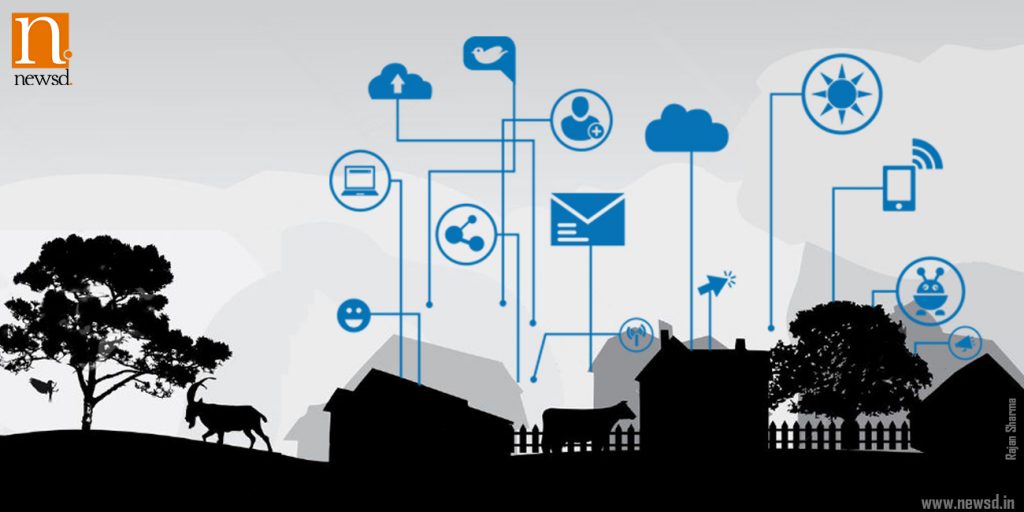India needs to put itself in high gear on the road to information sovereignty, or it may trail further behind in the race for dwindling global resources.
I see a strange paradox in front of me. The world has never been this safe – the end of the Cold War brought forth a global resolve to taper conventional arms and weapons of mass destruction. Yet, there exists a threat so looming and persistent that it is fundamentally altering the international economic order at light speed.
That paradox is starkly evident in India more than it is elsewhere. Breaking away from the shackles of socialism, the heady growth over the past twenty-five years rests on the laurels of the private enterprise. While India has dithered from being completely laissez-faire – which calls for strict non-interference of the government – the autonomy of the private enterprise has inadvertently become the biggest national security risk.
Liberalisation also changed the way nations look at their natural resources – they auction coal mines and radio spectrum nowadays. It is, however, information that really fuels the modern free-market economy.
Nations are now placed on different sides of the information, and not economic, divide. Data remains the last untapped natural resource.
Political theorist Steven Lukes says there are three faces of ‘invisible power’. The first creates the favourable conditions to win an argument, the second relies on covert manipulations to set a winnable agenda in the first place and the third subverts the underlying constructs that a society never even reaches the stages of discord. Or to put it differently, you make people act against their own will by conditioning what they want.
In that way, cyberspace is truly its third face. Its foundational insecurities not only threaten the fabric of governance, but the very sovereignty of a connected society.
With the clarion call of ‘Digital India’, we are literally riding a wounded tiger. Whether this century belongs to us would probably be decided in the coming decade. The knowledge economy that we seek to build can come to a grinding halt if systemic changes are not undertaken in our cyber-security architecture. It is time that ‘cyber readiness’ joins the list of India’s primary social development indices, to permanently ingrain it in our national ethos.
Not just India, but liberal economies worldwide share the same fate. Take the case of the Cyber-security Information Sharing Act (CISA) of the US, hurriedly passed by the Obama administration during Christmas holidays in 2015. Auguring a blanket cyber intelligence metadata sharing regime covering the public and private sectors, it is probably the most invasive of regulations to ever meddle into the affairs of the American business enterprise that prides itself on being feisty and independent.
It is truly a litmus test for the information economy. Cyber-security has acquired its place amongst the existential threats that can wipe out a nation.
However, the Indian banking system is faring better than other sectors due to the entrepreneurship of the private sector and a decent allocation of budget to bolster cyber-security. The banks have also set up a cyber threat intelligence sharing body called IB-CART, but the automated sharing of data under its auspices still remains a challenge. Your preparedness really depends on what kind of adversary you have chosen to battle against. If it’s a run-of-the-mill cyber-criminal, then we may be able to give him/her a hard time. But if it’s a motivated actor, then there still may be some chinks in the armour. The Union Bank of India barely averted a $170 million cyber heist some months ago. None of their cyber-security systems tripped, it was a manual operator who pointed to the glaring anomaly. You get the picture. The leaks by Shadow Brokers have revealed that the NSA had unhindered access to the Middle East’s banking network. It would be naïve enough to imagine that such access is only used to glean intelligence – one could easily subvert or sabotage markets and economies covertly. The threat is clear and imminent. Keeping all these in mind, who knows what damage has already been meted out upon our economy?
Watch: Rajiv Gandhi, the man who connected millions to their loved ones
Disclaimer: The opinions expressed in this article are the personal opinions of the author. The facts and opinions appearing in the article do not reflect the views of NEWSD and NEWSD does not assume any responsibility or liability for the same.


















